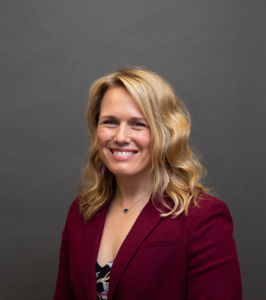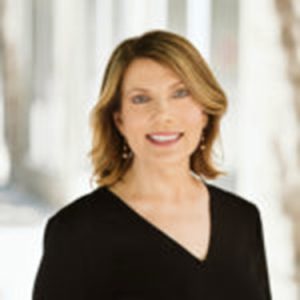…I’ll Never Be As Successful As Those Girls
Written by: Jessica Philips, M.A., BCBA, LBA
One of the things I’m most grateful for this past month was the opportunity to attend the Next Women’s Conference with my 12-year-old daughter.
Rene Massey, a member of CA Human Services Board of Directors, and her colleague organized the conference as a way to pay it forward. “To accelerate the success of women in business, we need to start engaging with girls at a much earlier age. Yes, we have more choices and resources today than ever before. Yes, we have a woman Vice President of the United States! And, yes, career obstacles still exist for women. Take the gender wage gap and the disproportional exit of women from the work force with the Covid-related closures of schools and childcare centers. This conference was our way of drawing attention to the gaps and sharing some useful tools and resources to help women as they navigate life careers and financial choices.”
So, for a few hours on a Sunday, I stopped worrying about COVID. I stopped worrying about my kids’ NTI (not-turned-in) assignments for virtual school. I stopped worrying about when the kitchen would get cleaned. I gave myself permission to get distracted by women of all ages (and one man, lol) who were coming together in this conference. Supporting each other to dream big and take charge of our professional, financial and life goals. I also gave myself permission to eat more than a few lemon OREOS since my video was turned off. It was energizing!
My daughter’s take was different. After watching a panel of girls share their career goals, role models and successes, I got this text:
“That was interesting and inspirational, but I will never be as successful as those girls are”
UGH. Sobering to hear my neuro-typical daughter say that, yes. Surprising? Nope. There was a time that I had that same mind-set. But I got lucky. I had several mentors who took me under their wing and helped me on my journey.
As someone who’s been passionate about equity and inclusion for people with autism and DD for the past 2 decades, I started thinking “if my daughter feels that way, what are young women with autism thinking? Who are their role models and what are their career aspirations and life dreams?
So, I asked few.
Here’s what Carmen, Annie, and Hallie had to say.
Carmen
What are your career goals or aspirations?
I have always wanted to be a teacher or work in childcare since I was in high school after I read a book about a relationship between a teacher and student with a disability. The student rocked her head on the floor as a self-harm behavior. The teacher in the book would let the student rock their head on the top of her shoe so the student didn’t injure herself. I have enjoyed working with kids since my first nephew was born and have been around kids most of my life. I also wouldn’t mind working in an office setting either, preferably in the school system. I have had internships in both professions.
Who were your professional role models when you were growing up?
My role model growing up was my favorite teacher. I don’t remember her name now. I liked that she made learning fun by creating teaching games. You need to have fun while learning!
Who are your professional role models now?
My professional role model is an ordained minister I met through church. She has two boys with CP, and we connected. She inspired me to study world religion indirectly.
Is there anyone with autism who has been a role model for you?
Parents who advocate for young people with autism and speak for those without a voice on their YouTube channels.
Have you ever had someone mentor/ support your professional development? If yes, what has been most helpful about the experience.
(Carmen did not have an answer for this question)
Annie
What are your career goals or aspirations?
I would love to be a translator or someone that helps other people. I always seem to be that one person others seem to gravitate towards. Helping others whether or not they have a disability is fine.
Who were your professional role models when you were growing up?
Dr. Temple Grandin, Robert Downey, Jr., and Hugh Jackman.
Who are your professional role models now?
Same as above. Not going to lie, their drive to succeed and the hardships each has faced has been such a tremendous help when I am faced with my own struggles.
Is there anyone with autism who has been a role model for you?
My friend Edward and Dr. Temple Grandin.
Have you ever had someone mentor/ support your professional development? If yes, what has been most helpful about the experience.
I had DARS when I was 18 and it was a helpful experience because they work with you and help develop skills that you have and work on skills that I either lack or need development in.
Hallie Hovey-Murray
What are your career goals or aspirations?
I always knew I wanted to go to law school because of the options it would give me. It’s helped me in my consulting role with Gordian Partners, which works with companies, nonprofits and educational institutions with policy and regulatory analysis, research, strategy, and development services.
Is there anyone with autism who has been a role model for you?
Honestly, no. Like I mentioned, I wanted to go to law school and I wasn’t aware of others on the spectrum in that type of career. It was difficult to find people that looked like me or that I could see myself in.
Who are your role models now?
My 91-year-old grandmother, Marie Hovey is my role model. At the end of the day, when you die, you’ll be remembered for the type of person you are. It’s the love and compassion that she has for her family that inspires me.
It’s not surprising that Dr. Temple Grandin is the only woman on the spectrum mentioned above. According to CDC data, boys are 4x more likely to be identified as girls. The presentation can look different for girls and they may go undiagnosed. Because of this, we don’t have ample data about employment outcomes for women on the spectrum.
The National Autism Indicators Report summarized the data we do have from the National Longitudinal Transition Study-2 (NLTS2) but keep in mind participants with autism were predominately white males.
Four in every 10 young adults on the autism spectrum never worked for pay between high school and their early 20s. • Those who got jobs tended to work part-time in low-wage jobs.
So, what’s the takeaway?
- We need more data on girls.
- Employment outcomes for males aren’t great.
- Because girls may be underdiagnosed, we need to be even more intentional about supporting career exploration, mentorship opportunities and exposing girls to a wide variety of diverse women role models-including role models who disclose their disabilities.
- Learn more about Hallie Hovey Murray’s journey as a woman on the spectrum by joining CA Human Service’s Virtual conference, Vision for the Future.
To be entered into raffle for a free conference registration ($215 value) join our mailing list
2. Share these Resources
Career Tools for Girls:
Inspirational Women Role Models (careergirls.org)
Empathy | Empowerment Lesson | Career Girls – Bing video
Developing Communication Skills | Empowerment Lesson | Career Girls – Bing video
Career Girls | Inspirational Women Role Models Career Guidance Website for Girls
The Job Interview | Autism Speaks
Career Tools for Mentors and Professionals:
Mentors-Toolkit-Career-Girls-Guide-Oct-2020.pdf
Family-and-Parents-Quickstart-Toolkit-Career-Girls-Guide-Oct-2020.pdf
 As a high schooler, Jessica babysat for and fell in love with a little boy with autism. She’s been passionate about the cause ever since. She is a Licensed Behavior Analyst and joined CA in 2003. In 2018, she became president and CEO. In this role, she provides strategic direction and support, so the team can accomplish its mission.
As a high schooler, Jessica babysat for and fell in love with a little boy with autism. She’s been passionate about the cause ever since. She is a Licensed Behavior Analyst and joined CA in 2003. In 2018, she became president and CEO. In this role, she provides strategic direction and support, so the team can accomplish its mission.
“When systems work the way they’re supposed to, CA can go away,” she adds. Until then, Jessica leads CA’s efforts to impact capacity development in human service systems through strategic public-private partnerships, leadership and collaboration.
After graduating from college, Jessica immediately began working in the intellectual and developmental disabilities (ID/DD) field. She worked at the Kennedy Krieger Institute while earning her master’s degree.
She’s taught coursework in autism and applied behavior analysis as an adjunct instructor and served on a number of statewide advisory councils and workgroups, including the Virginia Autism Council. In 2012, Governor Bob McDonnell appointed her to the Virginia Board for People with Disabilities, and she served on its Executive Committee.
Rene Massey
 René has always been interested in helping children with unique needs. Her commitment has included volunteer and board work with CA Human Services as well as City Singers Youth Choirs, which offers inclusion opportunities for children with ASD. She also volunteered at and served on the board of Richmond Hope Foundation, a multidisciplinary therapy center for children with physical and developmental challenges. René’s own family has struggled to find appropriate support and therapies for her niece, who suffers from a rare genetic deletion. This personal connection has only increased her passion for coordinated and systemic high-quality services and lifelong care for people with developmental and behavioral issues.
René has always been interested in helping children with unique needs. Her commitment has included volunteer and board work with CA Human Services as well as City Singers Youth Choirs, which offers inclusion opportunities for children with ASD. She also volunteered at and served on the board of Richmond Hope Foundation, a multidisciplinary therapy center for children with physical and developmental challenges. René’s own family has struggled to find appropriate support and therapies for her niece, who suffers from a rare genetic deletion. This personal connection has only increased her passion for coordinated and systemic high-quality services and lifelong care for people with developmental and behavioral issues.
References
Autism Prevalence Rises in Communities Monitored by CDC | CDC Online Newsroom | CDC retrieved 2/8/2021.
Roux, Anne M., Shattuck, Paul T., Rast, Jessica E., Rava, Julianna A., and Anderson, Kristy, A. National Autism Indicators Report: Transition into Young Adulthood. Philadelphia, PA: Life Course Outcomes Research Program, A.J. Drexel Autism Institute, Drexel University, 2015.



